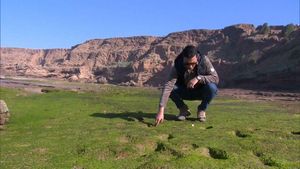Protests erupted across Tbilisi, Georgia, as thousands of citizens took to the streets for the third consecutive night, expressing their outrage over the government's recent decision to suspend the country's negotiations for membership with the European Union. The demonstrations, which turned violent, resulted in 44 people requiring hospitalization, including 27 protesters, 16 police officers, and one journalist.
The unrest began after Prime Minister Irakli Kobakhidze announced the suspension of the EU accession talks. This announcement sparked immediate backlash, with many Georgians viewing it as a betrayal of their country's hopes for closer ties to Europe.
Demonstrators gathered outside the Georgian Parliament, throwing stones, igniting fireworks, and burning effigies of Bidzina Ivanishvili, the founder of the ruling Georgian Dream party, whose influence is seen as overshadowing the government and steering the country toward authoritarianism.
Police clashed with the protesters, utilizing water cannons and tear gas to disperse the crowds. Despite these measures, the protests continued to grow, underscoring the deep dissatisfaction among the populace about the government's shift away from European integration.
Prime Minister Kobakhidze defended his government’s actions during a press briefing, stating, "The only thing we have rejected is the shameful and offensive blackmail," referring to perceived pressures from the European institutions. He attributed the unrest to opposition politicians, claiming they were stirring up trouble. "Any violation of the law will be met with the full rigor of the law. Those who incite violence will not escape responsibility," he warned.
This incident occurs against the backdrop of earlier tensions stemming from Georgia's controversial October 26 parliamentary elections, which many observers criticized as neither free nor fair. The opposition claims these elections were rigged with support from Russia, Georgia's historical and geographic adversary, igniting fears of the Kremlin's growing influence.
Salome Zourabichvili, Georgia's pro-Western president, expressed concerns about her country veering toward becoming "a quasi-Russian state." Zourabichvili called for new elections under conditions ensuring the will of the people is represented fairly, citing the recent political climate as alarming. "We are not demanding a revolution, but we are asking for new elections," she said. “Georgia has always resisted Russian influence and will not accept its destiny being stolen.”
The European Union responded swiftly to the government's suspension of EU talks. Kaja Kallas, the EU's foreign policy chief, criticized the decision as betraying the aspirations of the Georgians who wish for closer ties with Europe. The EU had previously granted Georgia candidate status conditional on meeting certain recommendations but had cut financial support earlier this year, citing the passage of laws perceived to undermine democratic freedoms.
The protests highlight the growing tensions between Georgia's government and its citizens' aspirations for democratic governance and European integration. Many Georgians are frustrated not just with the suspended EU talks but also with the overall political climate, accusing the ruling party of authoritarian practices reminiscent of Russia's governance.
The situation remains precarious as opposition leaders and protesters demand accountability and reform. The protests show no sign of letting up as we head toward the upcoming weeks, with many Georgians remaining resolute about their desire for change. The pressure will likely continue to mount on the Georgian government to address these concerns if they hope to preserve both their legitimacy and their path toward European integration.
This unrest serves as a stark reminder of the challenges Georgia faces, battling both the shadow of Russian influence and the frustration of its populace demanding transparency, accountability, and alignment with Western democratic ideals.



